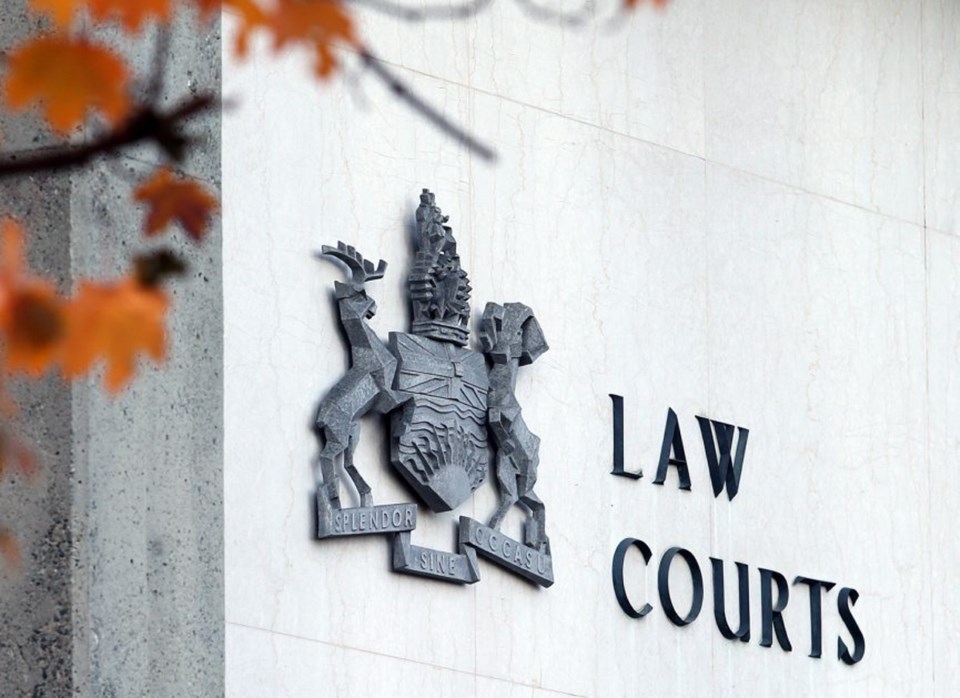A 100 Mile House resident finally got lucky this week. But it was in B.C. Supreme Court, rather than in the back of his van.
There’s a measure of comic relief in the judgment he won, but there are also serious musings from the judge about B.C.’s impaired-driving regime.
Police got a report of a naked man running down a remote road. A constable checked a van “slowly pulling onto the road” and stopped it. He found the gent in the driver’s seat, showing signs of impairment — and completely naked.
His story was that he had spent the evening in a bar where he met a woman named “Sharon.” He asked her home and she agreed. Because he had too much to drink, she agreed to drive.
“On the way they became intimate, which is why he removed his clothes. He says he got out of the vehicle to urinate and that Sharon said she needed to go to a nearby house and that she took the keys with her. He was sitting in the van expecting Sharon to return when the officer came upon him.”
The police report said “based on Lyle’s strange behaviour of having no clothes on, smell of liquor on his breath, slurred speech, poor balance, and the result of the [breath test] that Lyle’s ability to drive is affected by alcohol. Lyle answered with a laugh: ‘You got me.’ ”
Lyle insisted he never drove, because he didn’t have the keys. “They asked me where the keys were. I told them that Sharon had them.”
The police gave him the breath test — after letting him put his pants on — which he failed. So he got a driving prohibition.
He appealed to the Superintendent of Motor Vehicles, and a delegate heard the case over the phone.
The adjudicator rejected the appeal — as usual — preferring the police version over the driver’s. The delegate found it unlikely someone would have stepped out to relieve himself, when he was reported as “running down the road.”
“I also find it difficult to accept that ‘Sharon’ would remove your keys ... I also find it puzzling ... that you stated: ‘You got me.’ ”
The man took the case to B.C. Supreme Court and got an interesting result.
Justice Mark McEwan said the core of the case was the conflict in the stories: “I saw the van in motion; you were the sole occupant of the van; therefore you were the driver” versus “I was in the van; Sharon took my keys; therefore I could not put the vehicle in motion; therefore I was not a driver.”
The judge noted under the circumscribed scheme now in operation, the two versions lie side-by-side and can’t be reconciled. There are no face-to-face hearings, no cross-examination and no exchanges of information in court.
Credibility is based on testing all elements of a case. But the judge said B.C.’s three-year-old approach “subtracts most of the means by which credibility can be tested.”
So with the facts in front of him, he revoked the prohibition. The delegate’s reasoning was specious on some points and illogical on others, he said. There was no evidence of keys, central to whether the van was moving.
“You got me” could have referred to being drunk, not driving.
Quite a few appeals of superintendent’s reviews make their way to court, and the judge — who is no fan of the system — said many of the cases are examples of adjudicators “attempting to rationalize desired results, rather than to face the fact that a paper case ... will often contain too little evidence to render one version more likely than another.”
Deterring impaired driving is a given.
“If, however, the legislation supplements the imposition of penalties with the terrors of arbitrary state processes and foregone reviews, it is the duty of the courts to rigorously address those deficiencies and not to shield them.”
The system, with the cursory, rough-and-ready second look given to driving prohibitions, is designed to bypass the courts. But the courts don’t look to be too happy about that.
Just So You Know: The one remaining question is: Whatever became of Sharon? We’ll never know.


